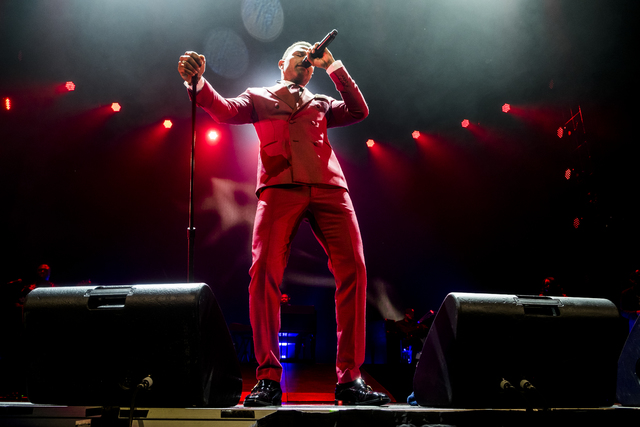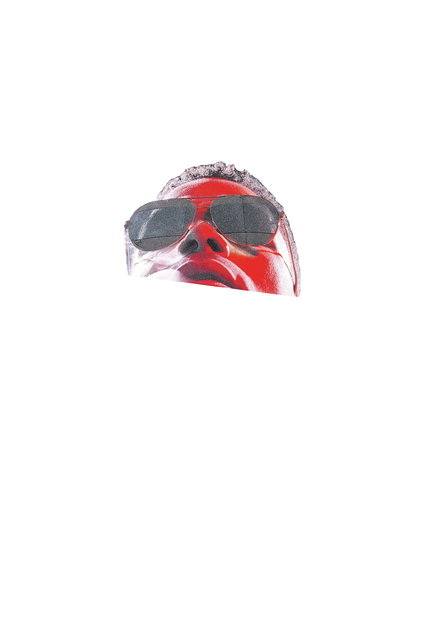Maxwell brings emotiveness and vulnerability to co-headlining tour with Mary J. Blige
You could call it who-the-hell-did-I-just-wake-up-next-to? music.
It’s a sultry, yet emotionally equivocal sound, alternately seductive and searching, one in which both bodies and insecurities are frequently laid bare.
It’s the opposite of the cocksure bluster at the core of much of modern R&B and hip-hop — and, by extension, contemporary pop, which is greatly indebted to both.
In other words, it’s Maxwell.
“I was looking at everything out there, and everyone is so confident, so powerful, so rich and they’ve got so many girls. And I’m like, ‘Yo, why do I feel different? Why do I not feel as confident as everybody around me?’ ” the singer wonders aloud from a tour stop in Florida. “Of course, it’s hip-hop, and hip-hop breeds that bravado, but I don’t feel like everyone is that confident.
“Maybe it’s just what we put on when we’re out,” he continues, “but I feel like I try to do records that people will go home to after they leave the party, when they wake up the morning after, like, ‘What did I do? Who’s in my bed? Ugh! Why?’ I write for the part of you that’s reflecting back, wondering, ‘Was that a good choice? Is this going to work out?’ That part of the human psyche really intrigues me, because it’s pure, it’s kind of humble, and I think that all art should reflect a certain amount of humility.”
The humility that Maxwell speaks of is palpable on his latest record, “blackSUMMERS’night.” Yes, there are falsetto flights of fancy where Maxwell equates love to the cosmos with a whole constellation of stars in his eyes. But it’s tempered by vulnerability, all that emotional warmth cooled by the chill of uncertainty and self-doubt.
“I’m confusing at times, sometimes I might lie,” he sings in papier-mache-delicate tones on “Listen Hear.” “I’m scared and I’m shy / To show you just how weak I am / Because sometimes I am not the kind of man I would like to be.”
Elsewhere, he confesses to feeling average, to chasing things he can never have, from lost loves to the confidence he alluded to previously. It’s been a natural, albeit occasionally bumpy evolution for Maxwell, who emerged as a big-hearted boheme on his breakthrough 1996 debut, “Maxwell’s Urban Hang Suite,” which both made him a star (The Washington Post once called him the “Marvin Gaye of the ’90s”) and helped catalyze the then-burgeoning neo-soul movement.
But fame has never sat all that well with Maxwell, so much so, that he’s grown accustomed to taking long stretches of time off between records, eight years between 2001’s “Now” and 2009’s “BLACKsummers’night,” seven years between then and his latest disc, periods during which he recedes from the public eye in an attempt to let his profile simmer down a bit.
“I never want to come off as comfortable and rich,” he explains. “It doesn’t really speak to the world for me to talk about something that someone can’t even conceive, which is the life I sometimes lead. But then I go away, and people forget who I am and it just goes back to normal. Then I remember what it’s like to not be known. I can write from that perspective. I take my hat off to my friends who are these famous people who are just constantly out there and can put out really powerful stuff and still be as jet-set-y as they are. I sometimes need to sort of dumb down life a bit, and then I can get to that place of ‘Lost’ and ‘The Fall.’ ”
The two songs he mentions are emotionally resonant highlights of “blackSUMMERS’night,” an album that straddles the past and present adroitly.
It’s not a throwback-sounding record evocative of the ’90s, but neither is it an attempt by Maxwell to keep up with the times like so many of his peers have done by adopting of-the-moment production values or embracing current musical trends, which even his tourmate, Mary J. Blige, has done on her latest album — and done well, by the way.
Instead, Maxwell has evolved in his own way, and even after a 20-year career in music, no one sounds quite like him. He’s neither a traditionalist nor a modernist. He’s just … Maxwell. This is how he’s remained relevant: by not trying to be relevant. He doesn’t do so stubbornly: He clearly appreciates his success, and isn’t above giving people what they want. He’s certainly not trying to carry the flag for the soul music of a bygone era or thumbing his nose at the contemporary cut-and-paste, Auto-Tune-abetted way of doing things in the studio.
It’s just not his thing even if he wanted it to be.
And he’s astute enough to know this, to be at peace with it.
“Sometimes it’s difficult to put the blinders on and just do what you do, be where you are at 43 now, in a world where so much is going on in pop music, especially with the changes in the music industry. It’s a little challenging,” he acknowledges. “I can appreciate the evolution of soul music. It’s just that I started a certain way; I have to end a certain way.”
That ending remains in the horizon: “blackSUMMERS’night” debuted in the Billboard top five when it was released in July, and Maxwell’s currently co-headlining arenas with fellow soul survivor Mary J. Blige on the “King and Queen of Hearts World Tour.”
“Mary empowers women out there and reminds them of why they should hate men a little bit,” he says with a laugh. “And then I come out there and try to remind women why we’re OK.”
Throughout the conversation, Maxwell frequently sounds almost surprised that his career has not only endured to the extent that it has, but that his audience has grown in many respects, noting bemusedly how many younger faces he sees in the crowd at his shows these days.
It hasn’t put him any more at ease about who he is or his place in the world, though.
“I feel like we’re all worried. People are concerned. There’s so much going on …” he says, his voice trailing off until a brief moment of silence is punctured by a heavy sigh. “I’m in Miami right now, and 2,000 miles away there’s Haiti, and it’s the poorest place. I’m sitting here, on a beach, talking to you about a show we’re going to do in Las Vegas, and just a few thousand miles away there’s someone who can’t even figure out where to get a glass of water.”
His words have a personal tinge to them, his mother being Haitian.
“I never forget that part of me,” he says. “No matter how high I get in the world, it’s always sort of present, ‘Wait a minute, there’s a lot of people in the world who don’t have as much as you do. Don’t forget to speak to them.’ ”
Soon, the interview ends, and he’s done speaking.
But only for now.
Read more from Jason Bracelin at reviewjournal.com. Contact him at jbracelin@reviewjournal.com and follow @JasonBracelin on Twitter.
Preview
Who: "King and Queen of Hearts World Tour," with Maxwell and Mary J. Blige
When: 7 p.m. Friday
Where: T-Mobile Arena, 3780 Las Vegas Blvd. South
Tickets: $69.50-$129.50 (888-929-7849)
















